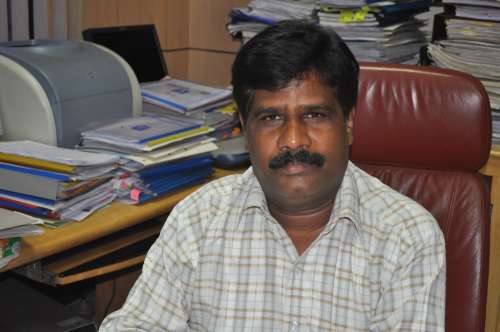After more than a week of erratic power cuts, BESCOM now says things will slowly get back to normal. "Everything is stabilised", says H Nagesh, Director (Technical), BESCOM. Nagesh says that load-shedding will now be scheduled.

BESCOM officials say domestic feeders will face three-hour power cuts daily. Pic: Vaishnavi Vittal
To know when you are likely to loose power during the day and how many times, read the tables in this article.. For domestic feeders, there will three hours of power cuts daily, one hour per cut, in three time windows: 6 AM to 10 AM, 10 AM to 2 PM, and 2 PM to 6 PM.
For commercial feeders, power cuts will be two-hours a day in two cycles: 2 to 4 PM and 4 to 6 PM. In the case of industrial feeders, powers cuts are for a maximum of 6 hours. This is between 6 and 8 AM in the morning, and between 6 and 10 PM in the evening. The rest of the day, industrial feeders receive uninterrupted power supply, says Nagesh.
The batches will change every week on a rotation basis, starting Mondays.
|
Feeder type |
Hours of load-shedding |
Timings of power cuts |
|
Domestic |
3 |
6 AM to 10 AM 10 AM to 2 PM 2 PM to 6 PM (one hour in each batch) |
|
Commercial |
2 |
2 PM to 4 PM 4 PM to 6 PM (one hour in each batch) |
|
Industrial |
6 |
6 AM to 8 AM 6 PM to 10 PM |
|
Mixed (Residential and Commercial) |
4 |
8 AM to 10 PM 6 PM to 10 PM (cyclical) |
Data courtesy: BESCOM
How to read the box above: For example, when power is cut off from 6 AM to 7 AM in an area, then there will be power cuts from 10 AM to 11 AM, and finally from 2 PM to 3 PM. Similarly, if power is cut from 7 AM to 8 AM, then it will again be cut from 11 AM to 12 noon, and 3 PM to 4 PM. The cycle continues this way for different areas.
In some areas, where there are mixed feeders (both commercial and residential), power supply is cut for four hours a day. This is between 8 AM and 10 PM in the mornings and is cyclical in the evenings, between 6 and 10 PM.
There will be no power cuts during night times.
Bengaluru’s shortage to continue
Nagesh also says that the state is now buying power from both private and central government sources. This includes 200 MW from the Jindal Power Plant in Bellary, 200 MW from the Power Trading Corporation and another 200 MW from the National Thermal Power Corporation.

H Nagesh, Director (Technical), BESCOM.
Pic: Vaishnavi Vittal
This apart, power supply from state-owned plants include: 800 MW from five units of the Raichur Thermal Power Station (earlier it was about 500 to 600 MW), 200 MW from the Bellary Thermal Power Station (which may go up to 400 MW), 50-150 MW from the Almatti dam and 589 MW from the Sharavathi. The state also produces power through wind energy. This accounts for about 100 MW on an average daily.
Raichur Thermal Power Station – 800 MW
Bellary Thermal Power Station – 200 MW
Almatti dam – 150 MW
Sharavathi plant – 580 MW
Wind power – 100 MW
New sources
Jindal Power Plant – 200 MW
Power Trading Corporation – 200 MW
National Thermal Power Corporation – 200 MW
The figures shown indicate power generated at the station. Of this, BESCOM receives only 50%, of which 25% is for Bangalore city.
BESCOM receives about 50% of the total power supply in the state. Of this, Bangalore City is allocated approximately 25% of power.
In total, Bangalore is supplied about 1500 MW of power, whereas the demand is around 1800 MW, making the shortage close to 300 MW approximately.
The crisis of the past few days has shown a steep rise in the number of complaints. While on a regular day, BESCOM receives around 1000 complaints (not just related to power cuts), the last ten days has seen a one and half time increase in the number of complaints.
Nagesh says the power crisis was due to technical snags at the Raichur Thermal Power Station and Udupi Power Station. But now as the state is purchasing power and with scheduled load-shedding, Nagesh says the scene is likely to get better. ⊕